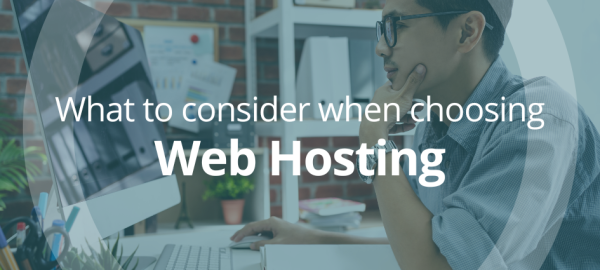Building a website is exciting and you want to make sure that it represents your business in the best possible light. From creating captivating content to selecting stunning visuals, you put a lot of effort into designing a website that captures your brand’s essence.
However, one crucial aspect of website building that is often overlooked is the choice of a web hosting provider. While it may seem like a minor decision, the choice can make or break your online experience.
In this article, we’ll explore the essential factors to consider when choosing a web hosting provider to ensure that your website runs smoothly, is secure, and performs optimally.
Speed: Time is money
In today’s fast-paced world, visitors expect websites to load quickly. In fact, research shows that websites that take more than three seconds to load have a higher bounce rate. If a website takes more than five seconds to load, 90% of visitors will leave. Slow loading speeds not only frustrate your visitors but also harm your search engine rankings. It’s important to choose a web hosting provider that offers fast load times. Look for providers that offer caching, content delivery networks (CDN), and solid-state drives (SSD) as they can help to improve website speed.
Bandwidth and disk space: How much do you need?
Bandwidth is the amount of data that can be transferred between your website and visitors. If your website receives high volumes of traffic, it will require more bandwidth. Similarly, disk space refers to the amount of storage space available to store your website’s files, images, and videos. Choose a web hosting provider that offers unlimited bandwidth and ample disk space, to ensure that your website can handle high volumes of traffic without crashing.
Security: Protect your website
Website security is critical, and you must ensure that your web hosting provider offers robust security features. Look for providers that offer features such as SSL (Secure Sockets Layer) certificates, firewalls, malware scanning, and backups. These features help to protect your website from hackers, viruses, and other cyber threats. Additionally, check if the provider offers regular updates to its security features to ensure that your website is always protected.
Scalability: Plan for the future
When choosing a web hosting provider, consider the scalability options that they offer. As your website grows, you may need to upgrade your hosting plan to accommodate increased traffic, more content, and higher resource usage. Ensure that your provider offers seamless and hassle-free upgrades to avoid website downtime and lost traffic. Look for providers that offer scalable hosting plans, such as virtual private servers (VPS) or cloud hosting, that can accommodate your website’s future growth.
User-friendly controls: Keep it simple
As a website owner, you may not have a deep understanding of servers and hosting operations. Therefore, choose a web hosting provider that offers a user-friendly interface that enables you to manage your website with ease. The provider should offer easy-to-use control panels, one-click installers, and a simple billing system. This ensures that you can focus on creating content and managing your business, rather than dealing with hosting complexities.
Customer support: Get the help you need
Finally, choose a web hosting provider that offers reliable and responsive customer support. Whether you’re facing technical difficulties or need advice on your hosting plan, it’s crucial to have a provider that can help you out when you need it. Look for providers that offer helpful and friendly support via various channels such as live chat, email and over the phone.
Conclusion
Building your website takes time and effort, and choosing a web hosting provider should not be a rushed decision. Take the time to consider the important factors such as speed, bandwidth, security, scalability, user-friendly controls, customer support, and type of hosting and don’t be afraid to ask the provider for advice or recommendations based on your needs. By doing so, you can ensure that your website is hosted on a reliable and efficient server that will benefit both your business and your customers.
